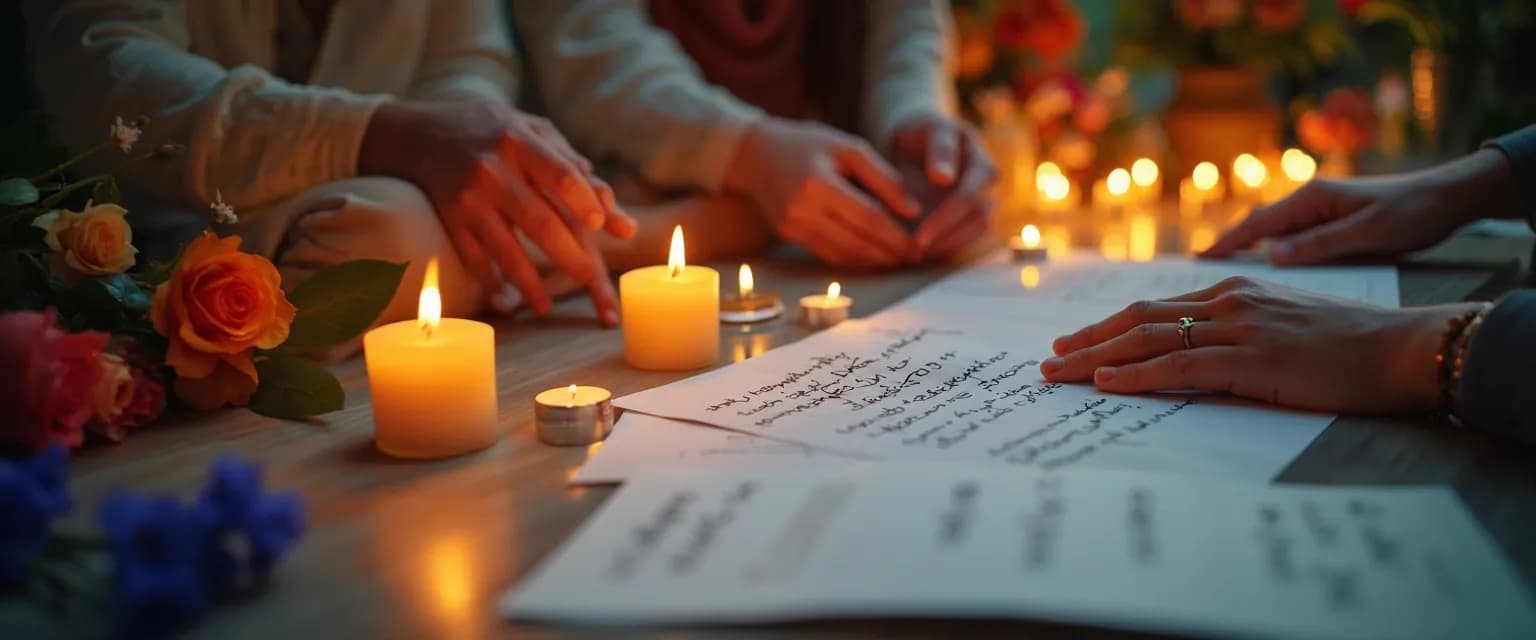7 Culturally Sensitive Things to Say to Someone Who Lost a Loved One
Finding the right words when someone has experienced loss is a universal challenge. Across cultures, people struggle with what to say to someone who lost a loved one, often defaulting to familiar phrases that may not provide genuine comfort. While Western expressions like "they're in a better place" or "everything happens for a reason" are common, they can sometimes feel hollow to those in deep grief. Different cultures have developed meaningful condolence expressions that honor grief in unique ways, offering us a richer emotional vocabulary for supporting others through loss.
When considering what to say to someone who lost a family member or friend, looking beyond our cultural bubble can provide more authentic ways to express sympathy. These diverse traditions acknowledge that grief is both universal and deeply personal, requiring emotional sensitivity rather than quick fixes. Learning these culturally rich expressions expands our capacity to be present with others during their most vulnerable moments.
The best what to say to someone who lost approach often involves honoring their cultural background while offering genuine support. These global traditions provide wisdom that transcends cultural boundaries, teaching us to be more thoughtful in our expressions of care.
What to Say to Someone Who Lost: 7 Global Expressions of Sympathy
Looking for effective what to say to someone who lost techniques from around the world? These seven culturally diverse expressions offer meaningful alternatives to common platitudes:
1. Japanese: "O-kuyami mōshiagemasu"
This phrase (お悔やみ申し上げます) translates to "I express my condolences" but carries deeper cultural significance. The Japanese approach to what to say to someone who lost emphasizes acknowledging grief without imposing false optimism. Rather than suggesting the person "stay strong," this expression honors the weight of their loss with respectful recognition.
2. Arabic: "Inna lillahi wa inna ilayhi raji'un"
This phrase (إنا لله وإنا إليه راجعون) from Islamic tradition translates to "We belong to God and to Him we shall return." It offers a spiritual perspective on life transitions, reminding the bereaved of the natural cycle of existence without diminishing their grief.
3. Mexican: "Que en paz descanse" with Storytelling
In Mexican culture, "May they rest in peace" is often accompanied by sharing stories celebrating the deceased's life. This what to say to someone who lost strategy combines respect with keeping memories alive, creating space for both grief and celebration.
4. Jewish: "May their memory be a blessing"
This beautiful tradition focuses on legacy rather than loss. The phrase acknowledges that while physically gone, the deceased continues to inspire and influence through memories, providing a what to say to someone who lost guide that honors ongoing connection.
5. Hindu: "Om Shanti"
This Sanskrit expression wishes peace for the departed soul. It reflects the Hindu belief in the soul's journey beyond physical existence, offering what to say to someone who lost wisdom that acknowledges spiritual continuity while respecting present grief.
6. Irish: Wake Tradition
The Irish approach balances grief with celebration of life. Rather than avoiding mention of the deceased, Irish tradition encourages sharing stories and even humor, demonstrating effective what to say to someone who lost techniques that honor the full spectrum of emotions grief brings.
7. African Ubuntu Philosophy
The concept of "I am because we are" emphasizes community support during loss. Instead of isolating phrases like "call if you need anything," Ubuntu philosophy suggests specific offers of help and presence, embodying what to say to someone who lost strategies centered on collective care.
How to Choose What to Say to Someone Who Lost Based on Their Background
When selecting what to say to someone who lost a loved one, consider their cultural and spiritual background. Different traditions have varying perspectives on death, grief, and appropriate support. This awareness of emotional patterns helps you avoid unintentionally hurtful expressions.
Focus on offering presence rather than trying to fix their grief. Research shows that simple, authentic expressions often provide more comfort than elaborate platitudes. The best what to say to someone who lost tips emphasize listening over speaking, allowing the bereaved to share their feelings without judgment.
When unsure about what to say to someone who lost, remember that your sincere presence matters more than perfect words. Cultural sensitivity doesn't require memorizing phrases from every tradition, but rather approaching grief with humility and openness to how others experience loss.
These diverse expressions remind us that finding what to say to someone who lost doesn't require eliminating their pain, but rather walking alongside them as they navigate it. By expanding our emotional vocabulary through these cultural traditions, we develop more meaningful ways to support those experiencing grief, honoring both universal human experience and individual paths through loss.




